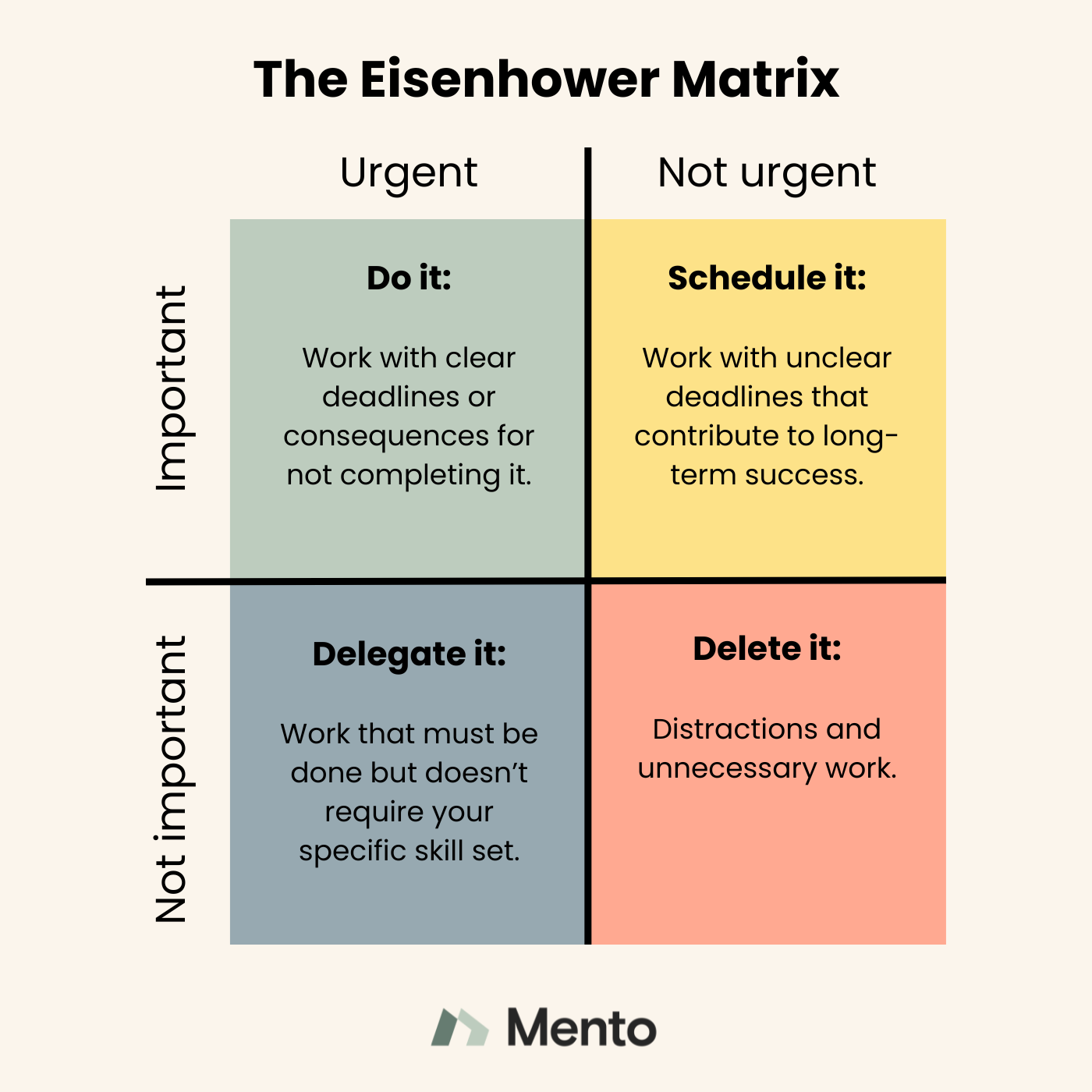Leadership
People Ops
How to Operate a Successful Team with Fewer Resources


Growing and operating a business in the face of budget, time, and resource constraints has become a critical capability in recent years. In a world where we’re running with reduced resources, leaders can do more, do less, or they can do more with less.
In their book Multipliers: How the Best Leaders Make Everyone Smarter, executive advisor Liz Wiseman and business coach Greg McKeown make the case that great leaders can still help their teams thrive, even when they have to do more with less. Based on research of more than 150 executives across four continents, Wiseman discovered that leaders can be placed on a spectrum between two extremes: Multipliers and diminishers. Multipliers are leaders who bring out others’ capability and “multiply” their organizations’ collective intelligence. By contrast, diminishers are leaders who drain an organization’s vital intellectual resources.
Wiseman’s research concluded that great multiplying leaders can 2x their team's capabilities, while diminishers only get 66% out of their teams. “People around multipliers feel like winners,” Wiseman wrote. “They’re inspired to give 100% of their creativity/effort and to stretch themselves beyond their original capacity.” Wiseman’s example of multipliers showcases the traits of a great business leader maximizing their team’s potential with fewer resources.
Operating successfully with a leaner team and fewer resources is possible — it just requires keeping strategic planning, effective communication, efficient processes, and a focus on employee well-being at the core of what you do. Here are some strategies that managers and leaders can employ to operate with a leaner team.
Communicate effectively
Open and transparent communication is crucial in any workplace, but particularly at organizations operating with fewer resources than before.
Keep your team informed about changes, challenges, and successes, and create a team environment that encourages and enables healthy communication — including trust, vulnerability, honesty, and safety — and make it safe for employees to speak up. Here are just a few examples of how we practice effective communication at Mento:
- Asynchronous or synchronous weekly or daily stand-ups
- Acknowledging excellent work
- Creating space for teams to talk about how they’re doing
- Empowering managers to share information with their teams
Dr. Brene Brown offers a framework for building trust and fostering workplace relationships called the BRAVING Inventory that can be helpful in thinking about instilling trust through communication at work. By practicing the principles of the BRAVING Inventory, leaders operating leaner organizations can communicate effectively and with impact. Employees will feel more confident speaking up and sharing ideas or concerns.
Prioritize and focus
Having fewer resources and a leaner team means being strategic about the projects the team tackles. Identify the core objectives and projects that have the highest impact on the business's goals. Allocate resources and efforts to these priority areas to maximize efficiency and outcomes.
Even though it might feel like taking a step back, now is the perfect opportunity re-evaluate your existing processes to identify inefficiencies and bottlenecks. Streamline workflows, automate repetitive tasks where possible, and eliminate unnecessary steps to make the most of limited resources. Mento’s Customer Success team recently completed an Eisenhower matrix exercise that’s been an enormous help for both prioritization and process improvements that are holding the team back from doing their best work.

Even though it feels harder than ever to focus and prioritize, leaders need to be realistic about what’s possible for the team to do. Adjust priorities to focus solely on the goals that matter most. Think about trimming your quarterly objectives and your key results. At Mento, we went down from 5 objectives to 3 objectives, and from 25 KRs to 15 KRs per quarter. Even though this environment was the forcing function, we’ll continue to stay focused. It’s been incredibly helpful for the team to have clarity and be able to focus on execution.
“Equally important is a demonstration by leadership that ‘we acknowledge we can't do everything’ in our current environment, which is really hard for most leaders, but will be received as liberation by your teams,” Mento executive coach Mike Lane said. Lane learned this lesson during his time as CPO at Grindr and CIO at MedMen. “Redefine the shorter-term horizon with motivating opportunities that focus specifically on what is critical and urgent to impact the business goals. This means you make cuts, and socialize those cuts or moves to the back burner. Invite debate and challenge teams to create an aligned environment driven by shared understanding, buy-in, and ownership of the roadmap.”
Empower your team
A study of more than 7,000 employees found workers who felt a low level of empowerment had an engagement level at the 24th percentile, compared to employees with a high level of empowerment who had an engagement level at the 79th percentile. Engagement matters, because businesses with highly engaged teams outperform peers by nearly 150 percent in earnings per share, according to Gallup research. Employee empowerment is directly tied to results.
Empowering employees to make decisions for your business frees up managers (whose efforts can be allocated elsewhere, especially during times of resource scarcity), increases employee effort, and boosts engagement throughout the workplace. A study by Zenger Folkman found 4 percent of employees are willing to put in more effort when empowerment is low, while 67 percent are willing to go above and beyond when empowerment is high.
“A good leader must lean into freedom and responsibility along with context, not control,” Mento executive coach Rico Nasol, a former executive at Netflix and Zappos, said. “Give the team all the information and context they need to do their job well and then give each team member the freedom and own the responsibility for their decisions. It doesn't mean you leave them on their own, but you guide and support them as opposed to directing and controlling them.”
Set clear goals and expectations
Setting goals is deeply meaningful and clarifying for employees — especially those on leaner teams who may be struggling to understand their responsibilities. Follow this advice for setting clear expectations and goals for employees:
Identify goals for the team — and link individual goals with organizational goals and business objectives. Ensure that each person understands their role and how they connect to the team. This helps align everyone's efforts toward common objectives and maintains a sense of purpose. Of companies that have effective performance management systems, McKinsey reports that 91% say that employees' goals are linked to business priorities. Employees will be more effective if they can see how their individual goals fit into the big picture.
Involve employees throughout the process. Getting buy-in from employees ensures a greater level of engagement in the goal-setting process. Develop SMART (specific, measurable, actionable, results-oriented and time-bound) goals jointly with employees, which inspires commitment and allows employees a sense of ownership in pursuing goals.
Being more realistic now can lead to being more productive later. Instead of being overly ambitious, “set your team up for success keeping in mind realistic goals for a lean team balanced with encouraging focus time, time off, and work-life balance,” Mento executive coach Jennifer Palazzo, formerly the Head of Marketing & Comms at TROV, said. “A happy, balanced, engaged team will be more productive.”
Focus on results, not hours
So often at work we’re focussed on how many hours were spent, generally equating more time spent with higher quality work. In an environment where resources, and hours, are scarce it can help to focus on results over hours. If you’re getting the results your business needs with less time spent, that’s a win, especially in a time of scarcity.
One way to help keep the focus on results: quick wins. Quick wins are visible contributions that deliver incremental success and build momentum.
“Perhaps most importantly, teams that are stretched too thin need to build and maintain momentum and confidence. Quick wins are critical to momentum that becomes contagious across teams. Slicing projects and bets down into reasonable and achievable scope demonstrates incremental progress and secures the wins,” Mento executive coach Mike Lane said.
Provide regular feedback and recognition
Giving regular feedback on performance and recognizing employee and team achievements is vital, especially at lean organizations. In Glassdoor’s Employee Appreciation Survey, 53% of people said feeling more appreciation from their boss would help them stay longer at their company — even though 68% said their boss already shows them enough appreciation. The lesson: More is better.
Positive reinforcement boosts morale and encourages employees to continue putting in their best efforts. A Gallup survey found that 67% of employees whose managers focused on their strengths were fully engaged in their work, as compared to only 31% of employees whose managers focused on their weaknesses. IBM’s WorkTrends survey of more than 19,000 workers in 26 countries, across industries and thousands of organizations, revealed that the engagement level of employees who receive recognition is almost three times higher than the engagement level of those who do not. The same survey showed that employees who receive recognition are also far less likely to quit.
Practice providing regular feedback and recognition in these ways:
- Make regular one-on-one meetings standard. One-on-one meetings are an opportunity for managers and direct reports to meet and check in with one another about how things are going.
- Make feedback more regular. Use digital tools to collect 360 feedback and distribute annual reviews or continuous feedback to employees more easily and consistently, using software like Mento’s Peer Insights tool.
- Conduct project retrospectives. Scheduling project retros after your team wraps up a project helps everyone reflect on how they did. Think about what went well, what could have gone better, and what actions the team should take moving forward. Here’s a template we use at here at Mento to help you get started.
Conclusion
By implementing these strategies, managers and leaders can navigate challenges, optimize their team's performance, maintain engagement and happiness at work, and achieve success, even with limited resources.
Getting more support when resources are scarce
Coaching and mentorship are a pathway for managers and business leaders to do more with less. By spending less on headcount, you can invest in the team that you do have. Coaching and mentorship enhance employee engagement and retention — employees who participated in mentoring programs are 49% less likely to leave their jobs. Additional support from an expert who has been through what your business is going through can help you more effectively navigate the best way to use your resources when you have fewer of them.
At Mento we provide businesses with the skills, support and hands-on guidance they need to get through their toughest challenges through 1:1 coaching and mentorship from today's top experts who have been there before. With flexible pricing, we have a plan to suit every business, even thoughs operating with fewer resources.
Get your team the support it needs. Schedule a demo today.
Recent articles
Leadership Development
Guide
Guide: Developing Resilient Leaders in 2025
Leadership Development
On-demand Webinar
Building Resilient Leaders in 2025 On-Demand Webinar
Leadership Development
On-demand Webinar
Measuring L&D Outcomes in 2025 On-Demand Webinar
Leadership Development
On-demand Webinar
Rethinking How We Support Managers On-Demand Webinar
Your coach is your...

Accelerating growth
of top performers and companies
Privacy Policy
|
Mento Inc © 2025